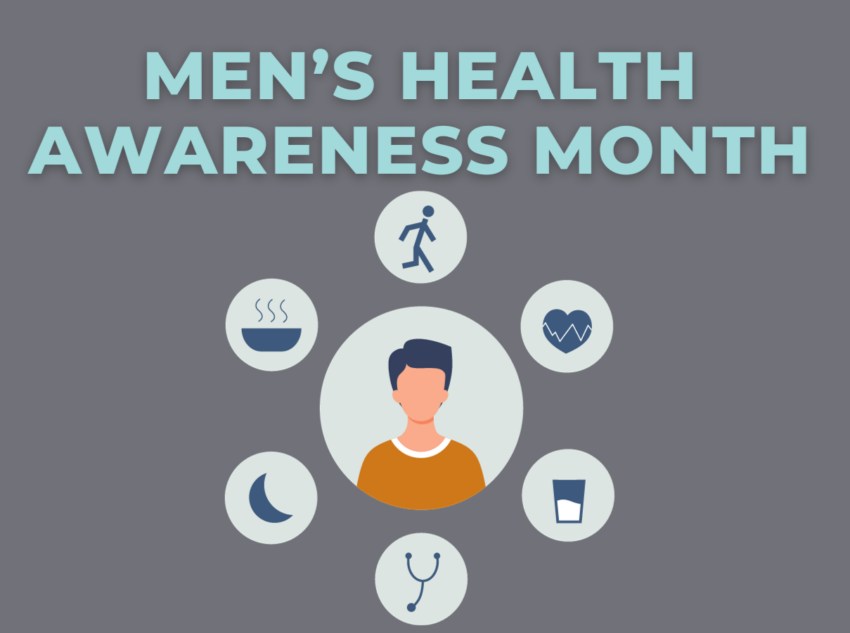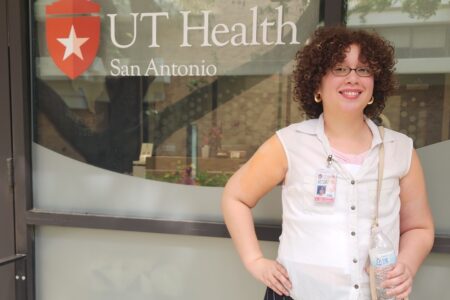
Share On Social!
Did you know 12.1% of men are in fair or poor health?
Similarly, the average life expectancy of men in the United States is almost 5 years less than women (76.2 compared to 81).
November is National Men’s Health Awareness Month, highlighting the importance of men’s physical and mental health while encouraging support for men facing prostate, testicular, and other cancers.
In November (and beyond), here are some ways you can support men’s health!
Latino Men’s Health
Latino men face many health disparities when it comes to physical and mental health.
For example, while national suicide rates decreased, the rates went up 6% for Latino men, according to a 2022 article from Texas Public Radio.
Machismo and other forms of stigma can play a large part in Latino men not seeking help.
“The concept of machismo, which cherishes traditional masculine traits like dominance, stoicism, and emotional restraint, might suggest that seeking help for mental health is a sign of weakness,” according to the National Institue of Health (NIH). “However, it is essential to recognize that seeking help is, in fact, a sign of strength and self-awareness.”
Lack of access to care and language barriers can also hinder Latinos from seeking treatment.
“Without the ability to communicate effectively with mental health professionals, these men might feel isolated or misunderstood, making them hesitant to seek the help they need,” the NIH reports.
In regard to physical health, the most common causes of cancer deaths among Latino men are lung, colorectal, and liver cancers.
Therefore, cancer screenings and other forms of prevention are vital.
However, Latinos often have a lack of preventative care.
“When combined with socioeconomic disparities and systemic racism, acculturation leads to a higher burden of cancer risk factors, such as obesity and type 2 diabetes in US-born Hispanic people,” according to the American Cancer Society.
1. Support the Movember Foundation
To support men’s health, the the Movember Foundation.
The foundation is a global men’s health movement that encourages men to grow moustaches to bring awareness to men’s health issues and raise money to fund men’s health projects and research.
“The Movember Foundation aims to change this way of thinking by putting a fun twist on this serious issue. Using the moustache as a catalyst, the idea is to bring about change and give men the opportunity and confidence to learn and talk about their health and take action when needed,” according to the Movember Foundation.
The foundation website provides resources and tips related to men’s health, real life stories of those who have experienced or been affected by health issues like cancer and mental health, and ways to donate.
Visit the Movember Foundation website to learn more about the organization and how you or someone you know can join.
Similarly, the No-Shave November campaign encourages participants to give up shaving and grooming their facial and/or body hair for 30 days. Then donate the money they save on haircare and supplies toward cancer research.
2. Download the Free Men’s Health Checklist
The Urology Care Foundation has created a checklist for Latino men and what they should consider when it comes to their health.

The checklist is available to download in English and Spanish.
“If you are a Latino man and want to stay healthy, this fact sheet may help as you make your own list to keep your health in check,” according to the Urology Foundation.
The checklist also includes when and why certain checkups and screenings are necessary.
“Knowing when to see a doctor may help you be more aware of your health. Many screenings and checkups can be planned, so it is good to know why you need them and how often to have them,” according to the Urology Foundation.
3. Volunteer for a Clinical Trial
We know certain types of cancers are more common in men.
Similarly, diseases like cancer and Alzheimer’s also disproportionately impact Latinos.
But clinical trials can help us fight for those affected by these health issues.
Clinical trials help researchers learn more to help slow, manage, and treat diseases.
“Latinos are in clinical trials are not only helping themselves, but they are also building a future with better treatments that can help their families and communities,” said Dr. Amelie G. Ramirez of UT Health San Antonio.
Dr. Ramirez continues to help Latinos volunteer for cancer and Alzheimer’s clinical trials.
Through Salud America!, she is highlighting open clinical trials, conducting webinars, and sharing stories of real Latino clinical trial participants to overcome clinical trial barriers. This work is supported by Genentech, a member of the Roche Group.
Visit Salud America’s clinical trials page to find a clinical trial, read about hero volunteers!
Like Leonel Rodriguez, who decided to participate in a clinical trial after being diagnosed with mantle cell lymphoma.
“[Clinical trials were] the best way because, you know, I feel good now with the treatment,” Rodriguez said. “Now I feel I’ve been feeling well, and well, well.”
By The Numbers
142
Percent
Expected rise in Latino cancer cases in coming years



